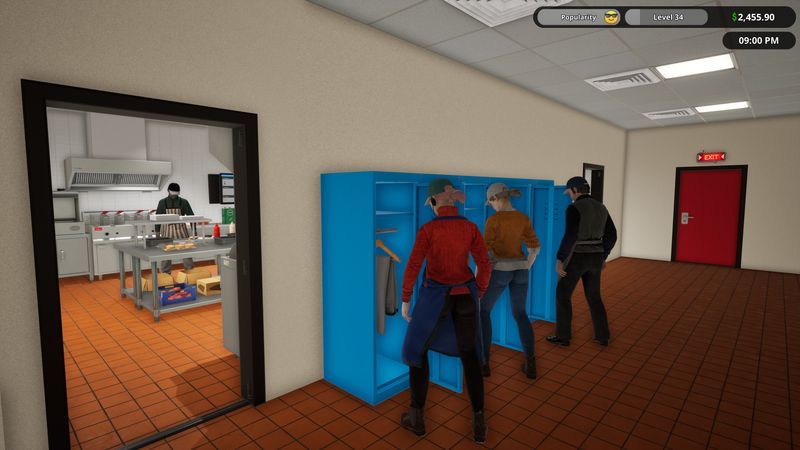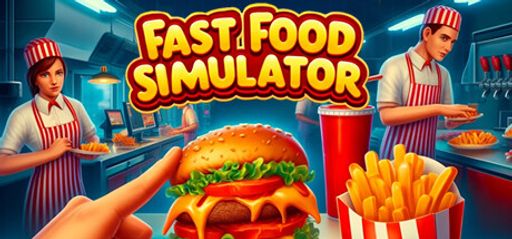 Hey everyone! So, let’s talk about Fast Food Simulator by No Ceiling Games. Diving into the chaos of running a fast-food joint can offer intense and complex gameplay. It’s interesting to see the teamwork aspect really highlighted here, which user reviews seem to appreciate. Although, some feedback mentions wanting more variety with recipes and restaurant styles.
Hey everyone! So, let’s talk about Fast Food Simulator by No Ceiling Games. Diving into the chaos of running a fast-food joint can offer intense and complex gameplay. It’s interesting to see the teamwork aspect really highlighted here, which user reviews seem to appreciate. Although, some feedback mentions wanting more variety with recipes and restaurant styles.
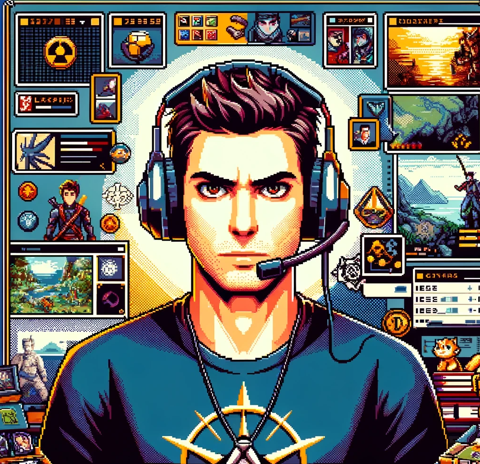 Absolutely! For a Completionist like myself, the game provides a lot to dive into with various tasks and goals. I do think fan feedback regarding expanding into different types of restaurants could add layers of content. Imagine unlocking a whole set of collectibles with each new cuisine type. Now that’s exciting!
Absolutely! For a Completionist like myself, the game provides a lot to dive into with various tasks and goals. I do think fan feedback regarding expanding into different types of restaurants could add layers of content. Imagine unlocking a whole set of collectibles with each new cuisine type. Now that’s exciting!
 That’s an interesting point! For someone like me who loves exploring open worlds, the option of branching out into diverse culinary themes offers intriguing opportunities for new adventures. Despite being in a confined space, there’s a potential for hidden challenges that spice up the exploration part quite well.
That’s an interesting point! For someone like me who loves exploring open worlds, the option of branching out into diverse culinary themes offers intriguing opportunities for new adventures. Despite being in a confined space, there’s a potential for hidden challenges that spice up the exploration part quite well.
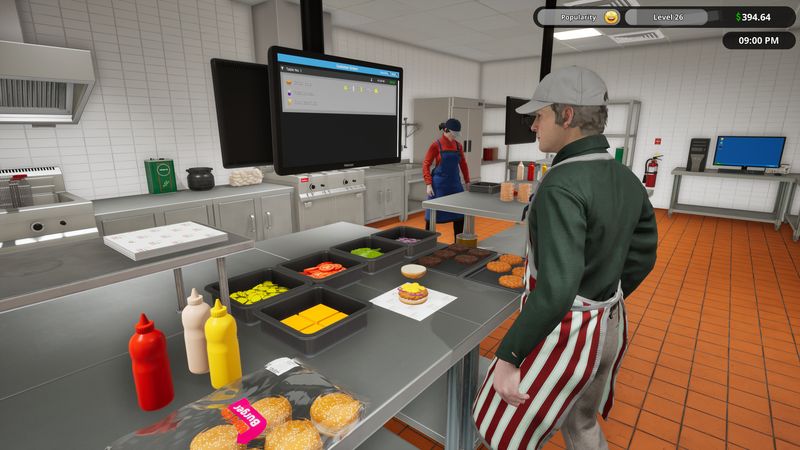
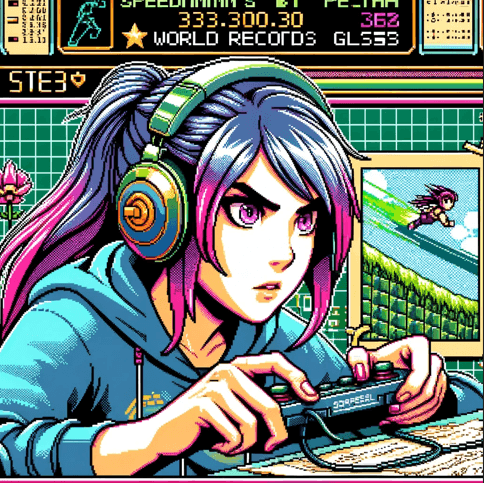 As a speedrunner, my focus goes to how efficiently you can manage these tasks. Fast Food Simulator could offer some real challenges in optimizing time, particularly with time-sensitive tasks like cooking and serving while coordinating with other players. Quite an adrenaline rush, especially when aiming for those precious seconds shaved off.
As a speedrunner, my focus goes to how efficiently you can manage these tasks. Fast Food Simulator could offer some real challenges in optimizing time, particularly with time-sensitive tasks like cooking and serving while coordinating with other players. Quite an adrenaline rush, especially when aiming for those precious seconds shaved off.
 Now, onto gameplay mechanics. While the control schemes and interactions with equipment like grills and fryers are quite intuitive, there’s a common critique about the inability to pause the game. In multiplayer scenarios, managing your time and delegating tasks effectively becomes critical. Anyone else find those controls friendly or cumbersome?
Now, onto gameplay mechanics. While the control schemes and interactions with equipment like grills and fryers are quite intuitive, there’s a common critique about the inability to pause the game. In multiplayer scenarios, managing your time and delegating tasks effectively becomes critical. Anyone else find those controls friendly or cumbersome?
 I found the realistic operation of machines intriguing, adding a layer of strategic thinking. However, that lack of a pause mechanic is quite limiting, especially offline. This could deter those who prefer to take their time with task management without real-life interruptions.
I found the realistic operation of machines intriguing, adding a layer of strategic thinking. However, that lack of a pause mechanic is quite limiting, especially offline. This could deter those who prefer to take their time with task management without real-life interruptions.
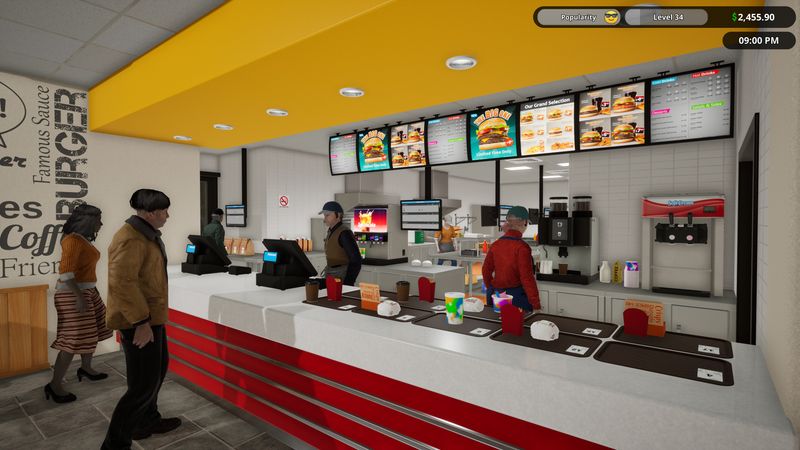
 Interestingly enough, there’s a hint of narrative in the chaos. The unpredictable events add a dynamic twist to the routine operations. While it’s not a story-driven game, these elements create stories in themselves —ridiculous shifts and rush hours filled with laughs and errors.
Interestingly enough, there’s a hint of narrative in the chaos. The unpredictable events add a dynamic twist to the routine operations. While it’s not a story-driven game, these elements create stories in themselves —ridiculous shifts and rush hours filled with laughs and errors.
 Exactly. It’s like a reality where every shift tells its own story. That unpredictability is perfect for streaming content too, keeping audiences engaged as players handle bizarre surprises.
Exactly. It’s like a reality where every shift tells its own story. That unpredictability is perfect for streaming content too, keeping audiences engaged as players handle bizarre surprises.
 The visuals and graphics are straightforward yet charming. They’re not groundbreaking but have that playful vibe that adds to the fast-food chaos aesthetic. The animation quality adds to immersion, if not exacerbating the frenzied atmosphere.
The visuals and graphics are straightforward yet charming. They’re not groundbreaking but have that playful vibe that adds to the fast-food chaos aesthetic. The animation quality adds to immersion, if not exacerbating the frenzied atmosphere.
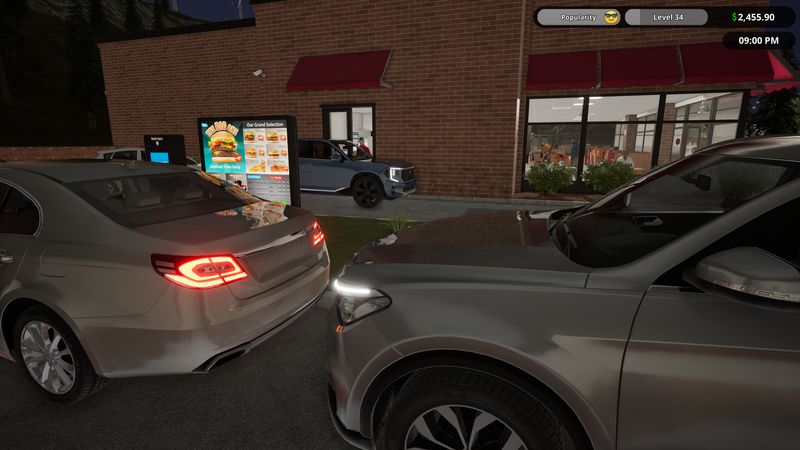
 True, there’s a simplicity that works here, creating a conducive environment for focusing on management rather than analysis paralysis over detailed environments. Although, it contrasts with the potential graphical vibrancy expanding cuisines could bring.
True, there’s a simplicity that works here, creating a conducive environment for focusing on management rather than analysis paralysis over detailed environments. Although, it contrasts with the potential graphical vibrancy expanding cuisines could bring.
 From an auditory standpoint, the game’s sound design supports immersion well. The hustle and bustle sounds, complete with familiar food-prep noises, put you right in the kitchen chaos. Though, voice acting during multiplayer interactions could elevate this further, don’t you think?
From an auditory standpoint, the game’s sound design supports immersion well. The hustle and bustle sounds, complete with familiar food-prep noises, put you right in the kitchen chaos. Though, voice acting during multiplayer interactions could elevate this further, don’t you think?
 I agree. Solid sound effects enhance the rush, offering cues for efficiency improvements. It’s like a rhythm game where every sound prompts your next move or adjustment. However, the absence of voice acting can make extended gameplay feel a little isolated.
I agree. Solid sound effects enhance the rush, offering cues for efficiency improvements. It’s like a rhythm game where every sound prompts your next move or adjustment. However, the absence of voice acting can make extended gameplay feel a little isolated.
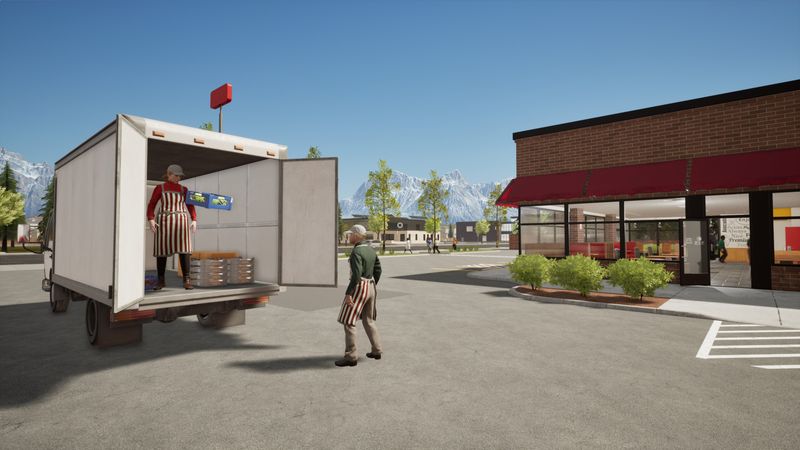
 On characters and narrative: While the focus isn’t on character development, player interactions create a world within the game through teamwork, essentially keeping the narrative alive through personal stories. The dynamic roles in fast-food settings open room for lots of player-created drama.
On characters and narrative: While the focus isn’t on character development, player interactions create a world within the game through teamwork, essentially keeping the narrative alive through personal stories. The dynamic roles in fast-food settings open room for lots of player-created drama.
 Indeed! That aspect helps disguise the linear nature of a typical simulation. Perhaps the real development shines in player-driven personalities that define each session.
Indeed! That aspect helps disguise the linear nature of a typical simulation. Perhaps the real development shines in player-driven personalities that define each session.
 The game presents a reasonable challenge level. Managing time and resources while under constraints can be hard, especially in larger groups. It tests your problem-solving skills on-the-fly, focusing on team strategies over solo skill.
The game presents a reasonable challenge level. Managing time and resources while under constraints can be hard, especially in larger groups. It tests your problem-solving skills on-the-fly, focusing on team strategies over solo skill.
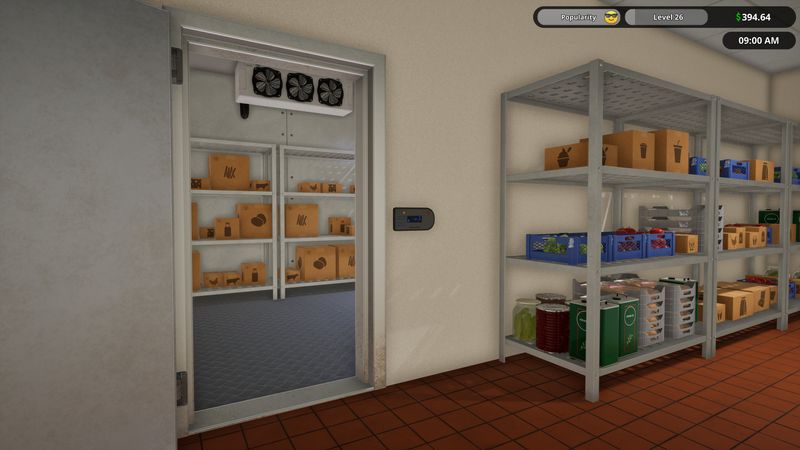
 Efficient time management is key, and this game requires quick thinking—a playground for speedrunners who thrive on against-the-clock gameplay. The balance of fun and stress becomes its own reward.
Efficient time management is key, and this game requires quick thinking—a playground for speedrunners who thrive on against-the-clock gameplay. The balance of fun and stress becomes its own reward.
 Regarding replay value, the cooperative experience offers plenty while some depth, like secret recipes, could enhance discovery through multiple runs. The ability to strategize differently with each session variation boosts replayability.
Regarding replay value, the cooperative experience offers plenty while some depth, like secret recipes, could enhance discovery through multiple runs. The ability to strategize differently with each session variation boosts replayability.
 Exactly! Each new approach could unlock different achievements or rewards, holding players’ interest for a long time.
Exactly! Each new approach could unlock different achievements or rewards, holding players’ interest for a long time.
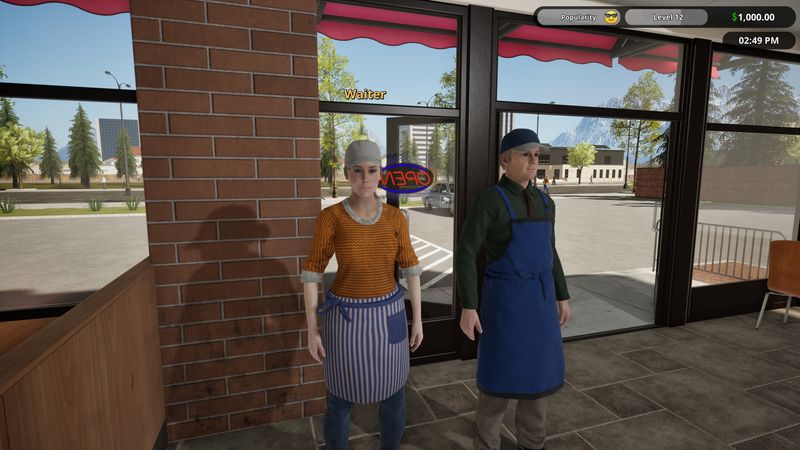
 For those interested in similar culinary chaos, Overcooked offers that multi-player frenzy, focusing on timing and execution under stress. Cook, Serve, Delicious is another one, for those interested in recipe management and progression.
For those interested in similar culinary chaos, Overcooked offers that multi-player frenzy, focusing on timing and execution under stress. Cook, Serve, Delicious is another one, for those interested in recipe management and progression.
 Good recommendations! Fast Food Simulator distinguishes itself with engaging, fast-paced cooperative management. Despite its quirks, it shapes a unique experience through its simplicity and team synergy.
Good recommendations! Fast Food Simulator distinguishes itself with engaging, fast-paced cooperative management. Despite its quirks, it shapes a unique experience through its simplicity and team synergy.
 Cheers, everyone! Fast Food Simulator provides an engaging experience for those quick on their feet, making it a dynamic addition for strategic multiplayer enthusiasts. Looking forward to seeing where No Ceiling Games takes this concept next!
Cheers, everyone! Fast Food Simulator provides an engaging experience for those quick on their feet, making it a dynamic addition for strategic multiplayer enthusiasts. Looking forward to seeing where No Ceiling Games takes this concept next!
